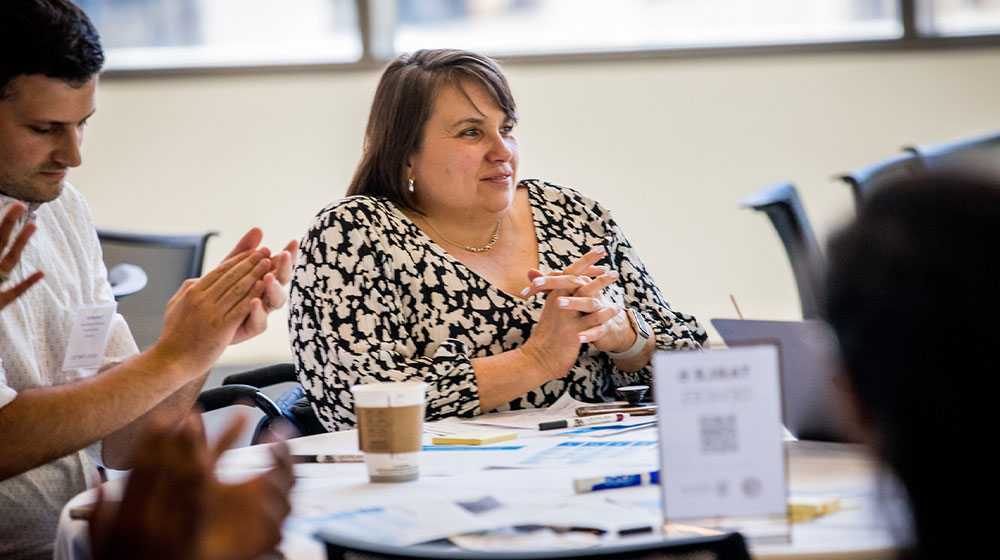Broadband Leaders Convene at Baumhart Center to Address Digital Equity Divide

“I love the exchange of ideas from different perspectives and how we might really change our city to make sure all of our residents have access to connectivity.” – Karen Tamley
On Thursday, September 1st, the Baumhart Center partnered with the Chicago Digital Equity Council to convene a Solution Design Workshop: Closing the Digital Divide in Chicago. The event was part of the third phase of the council’s three-phase plan: create solutions together (phase 1: identify barriers and challenges, phase 2: understand existing community resources). Over 40 leaders from internet service providers, telecommunications companies, and nonprofits gathered to discuss these issues and build pathways to solutions.
Watch our recap:
Launched in 2022, “Chicago’s Citywide Digital Equity Council brings together a cross-sector group of community members most burdened by the digital divide, and organizations committed to eliminating digital inequities, to close Chicago’s digital divide once and for all. Over the next six months, we will host community conversations in the City’s least connected neighborhoods to understand the nuanced barriers to digital equity, identify the work already happening on the ground, and co-create community-driven recommendations for Chicago.” Website.
Guests heard from Andrew Wells, Vice President of Workforce Development at the Chicago Urban League, Devon Braunstein, Digital Inclusion Policy Fellow for the Office of the Mayor, and Jasmine Williams, Senior Policy Analyst of Workforce Development at Chicago Cook Workforce Partnership and recent Baumhart Scholars MBA graduate.
Andrew Wells kicked the event off by framing the digital divide in Chicago: Chicago’s least connected neighborhoods are on the South and West Sides. In the eight least connected areas, more than 1 in 3 residents lacks internet access, and more than 90% of residents are Black. It was also noted that 1/5 of school-age children don’t have the internet at home. He emphasized the need for connectivity, different services, and resources based on what has happened already.
Jasmine Williams provided context on learnings from community conversations, which were opportunities for community members to share their experiences and perspectives through facilitated community circles. Three hundred twenty-six individuals from 56 different zip codes participated, 70% of which were from low-income areas, 48% from predominantly Black Community Areas, 29% from predominantly Hispanic Community Areas, and 8% of which were from majority Asian Community Areas. The most common barriers that arose were affordability, technical issues (access to devices, internet issues, and more), digital literacy, and policy. Jasmine highlighted anecdotes and experiences from community members.
Grounded by this framing, all participants broke into the design sessions, separated into three buckets - internet, devices, and digital literacy – and facilitated by Baumhart Scholars and community leaders. The resulting ideas ranged from increased involvement with community organizations, accessible public internet, digital navigation groups, a technology pantry, multi-lingual 24-hour help desks, and more - building opportunities for the Digital Equity Council moving forward. Karen Weigert, Baumhart Center Director closed the event emphasizing the need for the conversation to continue with more voices and concrete pathways to impact. The Digital Equity Council will host another neighborhood discussion on September 27 at Chicago State University. Information on how to register can be found here.
